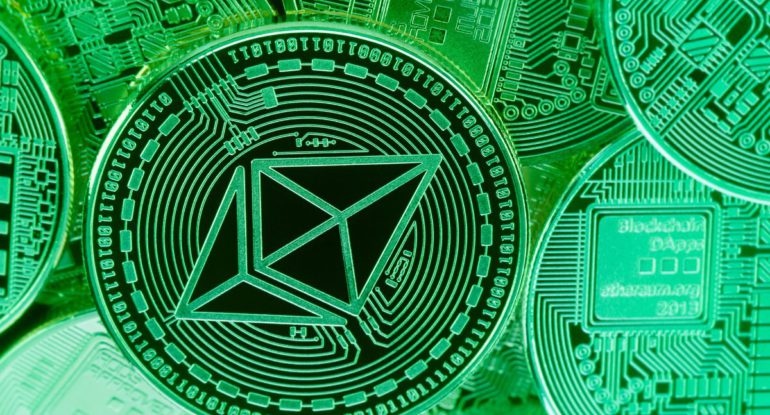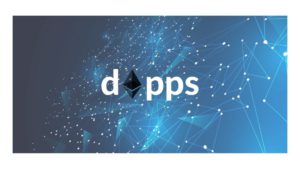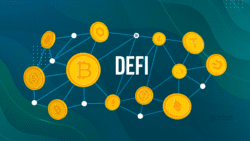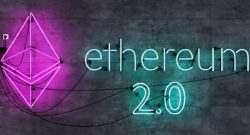A Guide To Becoming An Ethereum Developer: Building The Future Of Blockchain

Are you fascinated by blockchain technology and want to be part of the exciting world of decentralized applications (DApps) and smart contracts? If so, becoming an Ethereum developer might be the perfect path for you. Ethereum, with its robust ecosystem and widespread adoption, offers countless opportunities for developers to innovate and create groundbreaking solutions. In this guide, we’ll take you through the steps to become a proficient Ethereum developer.
What is an ethereum Developer?
Here are the key aspects of what an Ethereum developer does:
Smart Contracts: Ethereum developers primarily work with smart contracts. Smart contracts are self-executing pieces of code that run on the Ethereum blockchain. They can automate processes, enforce agreements, and facilitate transactions without the need for intermediaries.

Solidity: Solidity is the primary programming language used to write smart contracts on the Ethereum platform. Ethereum developers need to be proficient in Solidity to create and deploy these contracts effectively.

DApp Development: Ethereum developers design and build decentralized applications (DApps) that interact with the Ethereum blockchain. These DApps can have various purposes, including finance, gaming, supply chain management, and more.

Decentralized Finance (DeFi): DeFi is a prominent use case for Ethereum. Developers in this field work on creating DeFi protocols, decentralized exchanges (DEXs), lending platforms, and other financial services that operate on the Ethereum blockchain.

NFTs: Non-fungible tokens (NFTs) are another popular application of Ethereum. Ethereum developers may work on NFT marketplaces, games, or platforms that tokenize digital assets.

Ethereum Improvement Proposals (EIPs): Developers can also contribute to Ethereum’s development by proposing and implementing Ethereum Improvement Proposals (EIPs). These proposals suggest changes and upgrades to the Ethereum network.

Security: Ensuring the security of smart contracts is crucial. Ethereum developers need to be mindful of vulnerabilities and best practices to prevent hacks or vulnerabilities in the code.
Testing and Deployment: Ethereum developers test their smart contracts extensively, often on test networks, before deploying them on the main Ethereum network. They need to understand how gas fees work and optimize contracts to be cost-efficient.
Community Engagement: Many Ethereum developers are actively engaged in the Ethereum community. They participate in forums, social media, and developer meetups to share knowledge, seek help, and collaborate on projects.
Keeping Up with Updates: Ethereum is an evolving platform, with updates and changes happening regularly. Developers need to stay informed about these updates and how they may affect their projects.
In summary, an Ethereum developer is a specialized software developer who works with Ethereum’s blockchain technology to create decentralized applications, smart contracts, and services. They play a vital role in the growth and innovation of the Ethereum ecosystem.
Also, read – How Can You Use Ethereum To Generate Passive Income?
Steps to become a proficient Ethereum developer.
Before diving into Ethereum development, it’s crucial to grasp the fundamental concepts of blockchain technology and Ethereum itself. Start by exploring these key concepts:
- Blockchain Technology: Learn how blockchain works, its decentralized nature, and its potential applications beyond cryptocurrencies.
- Ethereum: Understand what Ethereum is, its history, and its role as a decentralized platform for building DApps and smart contracts.
- Smart Contracts: Get acquainted with smart contracts, self-executing code on the Ethereum blockchain that automates tasks and transactions.
Step 2: Learn Solidity
Solidity is the primary programming language for developing smart contracts on the Ethereum platform. To become an Ethereum developer, you’ll need to master Solidity. Here’s how:
- Official Solidity Documentation: Start with the official Solidity documentation to grasp the language’s syntax and features.
- Online Courses and Tutorials: Many online courses and tutorials are available, providing hands-on experience in writing and deploying smart contracts.
Step 3: Set Up Your Development Environment
To begin building Ethereum applications, you’ll need the right tools and environment:
- Ethereum Wallet: Install an Ethereum wallet like MetaMask to interact with the Ethereum blockchain and test your applications.
- Ethereum Development Frameworks: Explore development frameworks like Truffle and Hardhat, which streamline smart contract development and testing.
- Testing Networks: Use Ethereum’s test networks (e.g., Ropsten, Rinkeby) to deploy and test your smart contracts without spending real Ether.
Step 4: Build Your First Smart Contract
Now it’s time to put your knowledge into practice. Start with a simple smart contract project to understand how contracts work and interact with Ethereum’s network.
- Sample Projects: Many open-source sample projects are available on platforms like GitHub to help you get started.
Step 5: Join the Ethereum Community
Becoming part of the Ethereum developer community can be incredibly beneficial. You’ll find support, resources, and opportunities for collaboration:
- Forums and Social Media: Participate in Ethereum-related forums, Reddit, and social media groups to ask questions and share your knowledge.
- Ethereum Developer Conferences: Attend Ethereum conferences and meetups to network with fellow developers and industry experts.
Polygon CDK is an incredibly secure solution to launch an ETH L2.
Ethereum L2s have clear product market fit, but many lack critical security guarantees for users and developers. Contrary to popular belief, L2 security will deeply matter for users and builders.
At best, an… pic.twitter.com/9a1d0H62it
— Sandeep Nailwal | sandeep. polygon 💜 (@sandeepnailwal) September 6, 2023
Step 6: Keep Learning and Experimenting
Blockchain technology is constantly evolving, so it’s essential to stay up-to-date with the latest developments:
- Read Whitepapers: Explore Ethereum Improvement Proposals (EIPs) and whitepapers to understand upcoming changes to the Ethereum network.
- Experiment and Innovate: Don’t be afraid to experiment with new ideas and projects. Innovation is at the core of Ethereum development.
Step 7: Start Building DApps
Once you’ve gained proficiency in Solidity and Ethereum development, you can start building your decentralized applications (DApps). Identify real-world problems that can be solved using blockchain technology and create solutions.
Step 8: Launch Your Career
With a portfolio of successful projects and a deep understanding of Ethereum, you’re ready to pursue a career as an Ethereum developer:
- Freelance Opportunities: Offer your services as a freelance Ethereum developer on platforms like Upwork and Ethereum-focused job boards.
- Join Blockchain Companies: Look for job openings at blockchain companies, DApp startups, or companies exploring Ethereum integration.
- Contribute to Open Source: Contribute to open-source Ethereum projects to showcase your skills and collaborate with the community.
Becoming an Ethereum developer is an exciting journey that involves continuous learning and innovation. As you become more experienced, you’ll have the opportunity to shape the future of blockchain technology and make a meaningful impact on the world of decentralized finance, NFTs, and more. So, roll up your sleeves, start coding, and embark on your Ethereum development adventure today!




























































